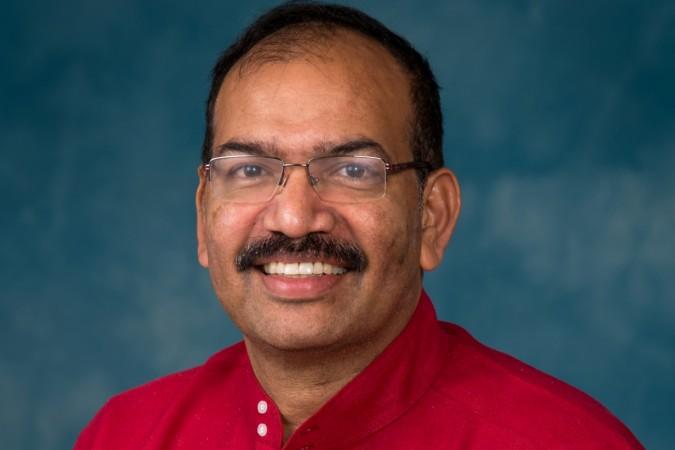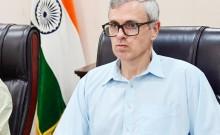
Everybody aspires to have a fulfilling career, whether it is in medicine, engineering, politics or as an astronaut. A career path is the way to plan your knowledge acquisition, travels, acquisition of wealth and even increase your chance of finding a better life partner. Across the world, the success or failure of people is increasingly measured by how well they do in their "careers".
However, historically speaking, 'career' is a relatively new phenomenon. There have been soldiers and merchants who left home in pursuit of a career from time immemorial. But even as recently as the twentieth century, ninety percent of people did not leave their village or city in pursuit of a job. The majority of people did what their parents did to make a living: farmers' children became farmers, blacksmiths' children became blacksmiths, and so on. In countries like India this was institutionalized by the caste system, but even in other countries, mobility from one profession to another was neither easy nor frequent.
So having a good career in the nineteenth century was very easy. You just had to be born into a good family. If you were born into a royal household, a career as a king (or queen), or administrator in one of the many provinces and colonies was assured. If you were not lucky enough to be born into the nobility, you had very little chance of aspiring to do anything better than, in most parts of the world.
Things changed a lot in the twentieth century. Improved transport, better communication and major wars helped and caused people to move in large numbers. This broke the stronghold that chance of birth had on people's choices for careers. Modern university education allowed people to learn new skills which enabled them to take up important jobs. A shift in the nature of organization from family-owned to publicly-owned created pathways for ordinary people to rise up in the corporate hierarchy. New political systems like communism and democracy gave the ordinary man the chance to rise to higher and higher positions, all the way up to Head of State, irrespective of the economic or social circumstances they were born into.
These changes formed the essence of the concept of 'career' in the twentieth century. Achieving a better career became about obtaining higher education from a good university, which gave you the knowledge, credibility and network to be chosen by one of the major corporate entities or government civil services. Jobs were stable and employers, both in the public and private sectors, looked after their employees well. Once you entered into an organization, the system took care of your training, promotions, mobility and even retirement. The greatest challenge was to get into the best possible university. With the spread of university education and democracy, this model became the standard for career management around the world.

But things are changing rapidly around us again, while most people seem oblivious to the changes. Careers in the twenty-first century will not be like careers in the twentieth century. In fact, the very idea of a 'career' where one enters into a specific domain of work at an early age and continues with it till retirement can now be considered a rarity. Not even one percent of those who will graduate in 2020 will be able to retire in 2060 working in their initial domain (if at all they can ever retire). This is due to a number of reasons; first and foremost, jobs are disappearing at a much faster rate than before. According to a study conducted by the Oxford Martin School, 47 percent of the employment types of today will become redundant by 2040. It is already evident to me that between computers, drones and automation, hundreds of jobs, from that of an airline pilot to that of a pizza delivery man, will be taken over by computers. Secondly, jobs move much faster geographically than ever before due to economic and security reasons.
Is the idea of comfortable retirement not applicable anymore?
While all of these changes will accelerate in the future, requiring the new generation to be prepared, changes are already happening now. Even those of us who are in our fifties and feel as though we have nothing to worry about, need to watch out. The idea of a comfortable retirement which could have been taken for granted in the previous generation if one had a good career is disappearing. So, regardless of where you are in your career, the chances are that you will need to work longer than your parents did before they retired. You should also be prepared to have fewer benefits when you retire, pushing you back into the employment market, or reducing the quality of post-retirement life.
The world of work in the twenty-first century will not be one of a single career starting with one university degree. Instead, people will have a series of shorter careers, which will also require that they go back to 'school' again and again to acquire new skills. One can imagine an engineer who starts in the automobile industry in 2020, who might end up one day as a chef in a restaurant. A person currently employed as a pilot may see that she has to move and become a logistics specialist when her job becomes redundant. This situation has many implications in the way one prepares for their 'career'.
To start with, investing many long years upfront in acquiring multiple university degrees is no longer a good strategy. This is particularly true in countries where a university education is expensive and puts back students by a large debt by the time they complete their education. If one has to transit from one career to another even before the first debt is cleared, clearly that is not a good investment. Instead, one will need to align the education to the employment market closely. A good strategy will be to enter the job market as soon as one is able to, but no later than attaining a bachelor's degree. One should then accumulate both technical skills and soft skills along the way so that when the job market shifts, they are able to transition smoothly to the newly demanded skill profiles.
Loyalty may just lose value
The second point of importance in twenty-first century is that the time when your employer was in charge of managing your career is over. The employer, even if it is the State, is only interested in specific skill sets. Loyalty is not considered a virtue and grooming and developing managers or civil servants, internally, to take up senior positions is no longer considered a good idea. Your value to an organization is not based on how long you have served that organization or how well you served it, but on whether you possess the skill set that the organization needs tomorrow. Anticipating what the organization may need tomorrow will be your responsibility, as will be acquiring those skills.
The third and most important point regarding career management in the twenty-first century is that it will not be your birth or even education which will determine if you have a successful career, but your networks. While the country and family into which you are born, and the university and locale of your higher education will partly determine your networks, in a world connected by social media these are no longer the ultimate or limiting factors. How you use the systems around you to acquire networks will determine how soon you are able to sense the winds of change in your career domain and how easily you are able to migrate from one to another.
In the days to come, I will be talking about all of these things. Which jobs are vanishing and which jobs are coming? How does one shift from one career to another? How does one form and maintain networks? What will happen to traditional careers? Are things getting better or worse for women with careers? What about career and migration- will more people migrate for work or fewer?
To find out, follow this series, and also follow me on Facebook, where I can answer your questions on career management.
(Opinions expressed are solely those of the author and need not necessarily reflect those of the United Nations.)

















